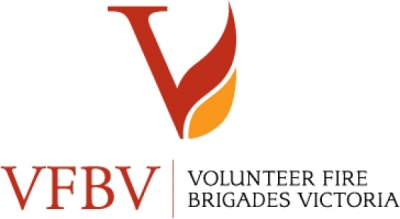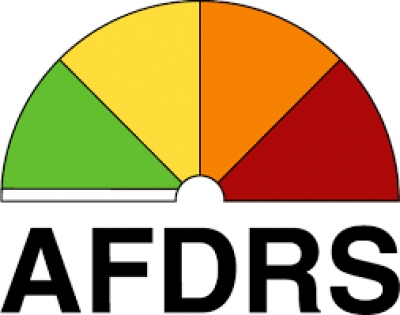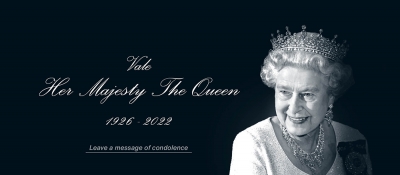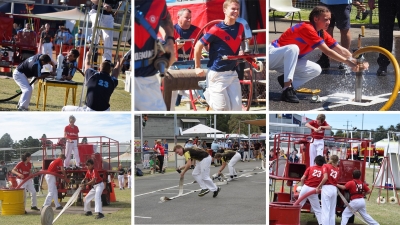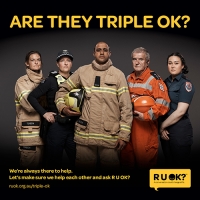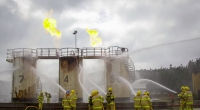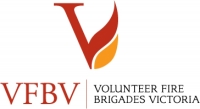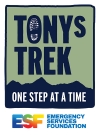
HomePage Featured (462)
Feedback Requested - Draft CFA Asset and Building Naming
Written by VFBVFormal consultation has commenced on a draft CFA Policy and corresponding Procedure to cover the proposed arrangements and requirements applying to the future naming of buildings, parts of buildings and other assets such as vehicles.
The proposed drafts are available as a download from the bottom of this page for consultation purposes.
In developing these drafts, CFA has advised that they have considered the following things (not exhaustive):
- The government requirements for CFA to consider diversity in selection of name.
- Ensuring we have single defined, fair and transparent process for the selection of names across CFA.
- That existing names already on buildings and assets are unaffected.
- The need for CFA to ensure there is a probity process (similar to existing awards).
- Ensuring there is an avenue of appeal available to members.
Members are encouraged to review the drafts and provide any feedback/suggestions/amendments including indicating support/non-support for the proposed documents.
Feedback can be provided by individuals, brigades and groups.
All feedback is used to inform and influence formal VFBV positions as well as used to influence CFA positions and thinking during the deliberative process. If we need to use your feedback to demonstrate or illustrate the views of members, your personal details will not be shared with CFA, and feedback will always be de-identified to protect your privacy.
We encourage members not to wait until deadlines to provide feedback, but rather provide it as early as possible which will give us a chance to conduct further research that may assist us being able to advocate more strongly for your desired outcome.
Feedback is due by Wednesday 30th November, 2022.
All members are welcome and encouraged to provide feedback. If you have any questions, if you could please contact your local State Councillor or VFBV Support Officer in the first instance.
How to provide feedback:
It would be preferred that members provide feedback ASAP, so that it can be received incrementally, allowing us enough time to consolidate, identify trends and research issues raised by members.
Feedback can be provided via:
- Emailing to This email address is being protected from spambots. You need JavaScript enabled to view it.
- Your local VFBV District Council or your local VFBV Support Officer
- By Post: 9/24 Lakeside Drive, Burwood East VIC 3151
- By Fax: (03) 9886 1618
Feedback does not need to be long or detailed, but if you do have the time to make substantive comment that is always welcome.
If you generally support a principle or policy, then a quick note letting us know would also be helpful. Similarly, let us know if you do not support it, or which aspects of it you don't support.
Where indicating non-support, it would be helpful to understand the key reasons why, and even a couple of brief bullet points would be adequate. Likewise, if you would prefer to provide a more detailed response, or mark-up and suggest changes to the documents, that is welcome also.
Your feedback will assist us form a VFBV position and response to the proposed changes and help us advocate on behalf of CFA volunteers. Please consider getting involved, and providing us your feedback ASAP.
Please remember to provide feedback in support as well as against. If we only hear from those who are against, it can be harder to determine the general comfort level of members with the proposals.
Feedback Requested - Updated CFA Child Safety and Wellbeing Policy
Written by VFBVFormal consultation has commenced on an updated CFA Policy on Child Safety and Wellbeing.
This policy has been updated to reflect the new Victorian Child Safe Standards that came into effect in 1 July 2022, and are in their six-month transition period.
Under the Victorian scheme, there are now 11 Standards, which include new requirements such as:
- Involving families and communities in efforts to keep children and young people safe
- A greater focus on safety for Aboriginal children and young people
- Managing the risk of child abuse in online environments
The new Victorian Standards are more prescriptive than the previous standards, with new minimum standards for each standard that all organisations must meet. Therefore, the CFA policy has been updated to reflect the new requirements.
The draft policy is available for download from the bottom of this page for the purposes of consultation.
Members are encouraged to review the draft policy and provide any feedback/suggestions/amendments including indicating support/non-support for the proposed changes.
Feedback can be provided by individuals, brigades and groups.
All feedback is used to inform and influence formal VFBV positions as well as used to influence CFA positions and thinking during the deliberative process. If we need to use your feedback to demonstrate or illustrate the views of members, your personal details will not be shared with CFA, and feedback will always be de-identified to protect your privacy.
We encourage members not to wait until deadlines to provide feedback, but rather provide it as early as possible which will give us a chance to conduct further research that may assist us being able to advocate more strongly for your desired outcome.
Feedback is due by Monday 7th November, 2022.
All members are welcome and encouraged to provide feedback. If you have any questions, if you could please contact your local State Councillor or VFBV Support Officer in the first instance.
How to provide feedback:
It would be preferred that members provide feedback ASAP, so that it can be received incrementally, allowing us enough time to consolidate, identify trends and research issues raised by members.
Feedback can be provided via:
- Emailing to This email address is being protected from spambots. You need JavaScript enabled to view it.
- Your local VFBV District Council or your local VFBV Support Officer
- By Post: 9/24 Lakeside Drive, Burwood East VIC 3151
- By Fax: (03) 9886 1618
Feedback does not need to be long or detailed, but if you do have the time to make substantive comment that is always welcome.
If you generally support a principle or policy, then a quick note letting us know would also be helpful. Similarly, let us know if you do not support it, or which aspects of it you don't support.
Where indicating non-support, it would be helpful to understand the key reasons why, and even a couple of brief bullet points would be adequate. Likewise, if you would prefer to provide a more detailed response, or mark-up and suggest changes to the documents, that is welcome also.
Your feedback will assist us form a VFBV position and response to the proposed changes and help us advocate on behalf of CFA volunteers. Please consider getting involved, and providing us your feedback ASAP.
Please remember to provide feedback in support as well as against. If we only hear from those who are against, it can be harder to determine the general comfort level of members with the proposals.
Fire Behaviour Index
By Adam Barnett, VFBV Chief Executive Officer
September not only heralds the end of winter, but this year marks the official commencement of the new Australian Fire Danger Rating System that officially launched on 1 September nationwide.
Following extensive community consultation and research, public feedback indicated that the old system was difficult to comprehend, had too many levels, and that insufficient numbers of people act on the advice provided. Consistent community feedback indicated common misconceptions, including the false perception that fire danger ratings were designed to predict the likelihood of a fire, rather than describe what the likely fire behaviour would be for the predicted conditions.
Throw in the fact that different jurisdictions used different ratings and inconsistent wording, it was no wonder the feedback confirmed that people were having trouble knowing what to do and how to interpret the old ratings.
The new system was developed to address these weaknesses and was designed to be easier to understand, uses fewer levels, intuitive colours, action-oriented messages and more simplified terms and language that it is hoped will increase the likelihood of people acting on fire danger rating information.
And being a national program, the new system is being implemented across every State and Territory bringing long overdue nationally consistent public facing messaging and rating thresholds.
While we have been served well by the McArthur meter developed by A. G. McArthur and the CSIRO, more recent fire seasons over the last decade began to reveal fires were more frequently experienced beyond the scale the system was designed for. The 2009 Black Saturday fires were a case in point and led to the Victorian Bushfires Royal Commission recommending a revision of the fire danger ratings system. A short-term fix of adding ‘catastrophic’ or ‘code red’ to the scale was an attempt to adjust for the extreme conditions at the higher end of the scale.
The new system seeks to utilise the latest science, knowledge and data to improve the predictions of fire behaviour and predict the relevant threats more accurately. Whereas the McArthur system calculations were based mostly on fire weather and relied on two fuel indices (forest and grass) the new system takes inputs across 22 different fuel types that will then calculate eight broad fire behaviour models and indices which better reflect our diverse vegetation and ecosystems and can be applied to the relevant area.
Behind the scenes, we will use the fire behaviour numerical index scales to support planning and preparedness level related decisions, while for public facing communications, the calculated index will be translated to a Fire Danger Rating via one of the four simple categories to convey to the public a simple rating that communicates the expected level of danger should a vegetation fire start, along with corresponding actions they should take to ensure their personal safety. (There is also a ‘no rating’ level.)

And while there is a high level of confidence that the new system will be easier to comprehend and lead to better community engagement, each of us have a very important role to play in helping educate our communities.
Knowing what the ratings are is one thing – educating our communities on how to use the ratings to adapt their behaviours is something else altogether. This will require significant and concerted effort, and the linkages that volunteer brigades enjoy within their communities can be leveraged to help drive this behavioural change.
The first step is to ensure each member is familiar with the new system and how it works. This is not only important for your own knowledge, but to assist you should you get a question from the public. It can also help you explain the changes to your friends and family. Online training programs are available now via the CFA learning system that members can undertake immediately. There are currently two courses to choose from, and the introductory course which is made up of two modules is recommend for all members and will take approximately 60 minutes to complete.
The second course is an intermediate course designed to provide a more detailed explanation and is designed for active planners and decision makers. Completion of the introductory course is a prerequisite for the intermediate course and adds another 60 minutes for those who wish to undertake it.
While both courses are publicly available through various sites, it is recommended you undertake them via the CFA online learning system so that your training and course completion is recorded in your training records. Simply visit www.members.cfa.vic.gov.au and click on the AFDRS (Australian Fire Danger Rating System) picture on the homepage after you log in. This will provide links to the learning hub where you can access the courses.
From an internal perspective, it is important to note that this year the Chief Officer will be using a combination of the old Fire Danger Index alongside the new rating system (Fire Behaviour Index) to determine operational readiness and total fire ban declarations. This will allow the accuracy of the new system to be tested during the systems introductory stages. And like all new systems, there are sure to be some teething problems as the new systems are bedded in, and we may see a slight increase in TFB’s.
Rather than assume these are anomalies, it is equally plausible that with all the new data and inputs that the system now uses to calculate the fire behavioural index, these may represent a more accurate assessment of conditions. Only time will tell.
On the positive side, significant work has been undertaken to run the prototype system in parallel using the last 3 – 4 years of data to fine tune the accuracy of the new system and understand its consequences over seasons just past. This has been invaluable and has allowed the system to be tweaked based on historical records and patterns. So while it is a new system, the national board has a high level of confidence in its implementation.
Sadly, there has been some delays in the procurement of new Fire Danger Rating signs. The replacement of electronic signs is being managed by EMV, with CFA managing the manual roadside signs. Given the large number of signs across the state, these are being progressively replaced starting in areas likely to have fire danger periods declared first, starting in the Northwest. All signs are expected to be replaced by early December.
If you have any concerns for a sign located in your brigade area, you can check on the estimated timing by checking in with your District staff. All old signs should have been decommissioned – and have a holding sticker placed over the board notifying the public that it is due to be replaced shortly.
Brigades are also requested to ensure that any old publications, brochures or pamphlets showing the old ratings are removed from brigade and community locations. You can order replacement publications from your District Community Engagement Coordinator through your district office.
Also available is the CFA AFDRS Stakeholder kit, which will be especially useful to those brigades who use social media, as the kit includes social media content and key messages to assist with your communications. This kit is also available via the VFBV website.
VALE
On the 2nd September 2022, I and representatives of the VFBV Board attended the State memorial service held to honour the life of the Honourable Jane Garrett. The service celebrated her life and achievements, and we paid our respects on behalf of all CFA volunteers to a brave and inspiring Minister, who will be sorely missed.
HER MAJESTY
On the day of going to press, we woke to the sad news that Her Majesty Queen Elizabeth II had passed away.
The magnificence of her historic reign as the longest serving monarch was only eclipsed by her enduring lifelong devotion to duty that was an inspiration to all.
Her steadfast duty, service and loyalty to her people over her lifetime was most admirable and are qualities that particularly resonate with CFA volunteers. The personal kindness she extended to Victorians and other Australian’s during natural disasters will be forever remembered and cherished, as too will the support and respect she has always shown towards emergency services personnel.
This was best embodied by her creation of the National Emergency Medal following the 2009 Victorian Black Saturday fires.
In tradition dating back centuries, and on behalf of all CFA volunteers, I solemnly affirm the Queen is dead, Long live the King.
Affiliation Prize Winners
Congratulations to the winners of the 2022/23 VFBV Affiliation Prize Draw!
Thanks to all Brigades/Groups who paid their 2022/23 affiliations prior to 31st July this year thus qualifying for the 2022/23 VFBV Affiliation Prize Draw. The winners along with their selected prizes are:
1st prize - Toolern Vale Fire Brigade (District 14) - G-Force Nozzle with Quick connect coupling; Gated Wye with Stortz Inlet and quick connect outlets;
2nd prize - Tungamah Group (District 22) – five helmet torches and carry case;
3rd prize – Dartmoor Fire Brigade (District 4) – Root Soaker & Bag;
4th prize – Stratford Fire Brigade (District 10) – TFT Break Apart Nozzle.
Thank-you to GAAM Emergency Products and Powdersafe for donating these great prizes.
Remember, by affiliating you are making a vital contribution to the important work we do on behalf of all CFA volunteers. Advocacy, support and the provision of trusted and credible advice are all strengthened when members work together and share a unity of purpose.
If you are not sure whether your Brigade or Group’s VFBV Affiliation and Welfare Fund subscription are up to date, please contact your Secretary urgently, as we encourage all those who have not yet affiliated to do so as soon as possible.
For any enquiries, contact your VFBV Support Officer, State Councillor or call us at the office on 03 9886 1141.
Fiskville Redress Scheme
VFBV has welcomed the announcement by the Victorian Government of the establishment of a Fiskville Redress Scheme to support Fiskville affected persons.
The scheme opened on Monday 5th September 2022, and addresses a key recommendation from the 2016 Parliamentary Enquiry into Fiskville which recommended that the Victorian Government establish a dedicated redress scheme offering a range of options such as access to health services, a financial payment and a meaningful apology.
In the same way that firefighting is an inherently dangerous activity, the exposure to toxins released during combustion and sometimes the agents used to extinguish fires also pose a large risk to firefighters. The historic Fiskville experience demonstrates that these toxic exposures can be present in hot fire training scenarios in just the same way as random fire events.
The scheme is accepting applications from people who had prolonged exposure to toxic substances at the former Fiskville Training College site between 1971 and 2015. The scheme offers a range of options including a financial payment, and access to mental health counselling and medical health support. You can contact the schemes support team for a confidential discussion or assistance with your application: 1300 315 198 Between 9:00 am-4:30 pm, Monday-Friday (excluding public holidays) or via This email address is being protected from spambots. You need JavaScript enabled to view it.
The scheme is administered by the Department of Justice and Community Safety and is independent of CFA. To download an application form, or review further information, you can visit https://www.vic.gov.au/redress-fiskville
Dates for 2023 State Champs confirmed

The dates for next year’s CFA/VFBV State Firefighter Championships have now been confirmed.
The 2023 State Championships will again be held over two weekends in Mooroopna in District 22, with the Urban Junior events on March 18 and 19 and the Urban Senior, Rural Senior and Junior events on March 25 and 26.
The championships attract a broad range of members and act as the largest annual ‘celebration of CFA’ and include community events, displays, skills maintenance opportunities and a large CFA corporate attendance.
Competing in championship is now more flexible than ever.
VFBV is encouraging brigades to enter for next year’s Championships with particular focus on encouraging brigades who have not competed for some years to put together a team, combine a group of brigades for a team or enter into just specific events if they don’t want to compete across the whole program.
Contact This email address is being protected from spambots. You need JavaScript enabled to view it. if you would like more information on entering a team for 2023 State Championships.
Quarterly Supplement
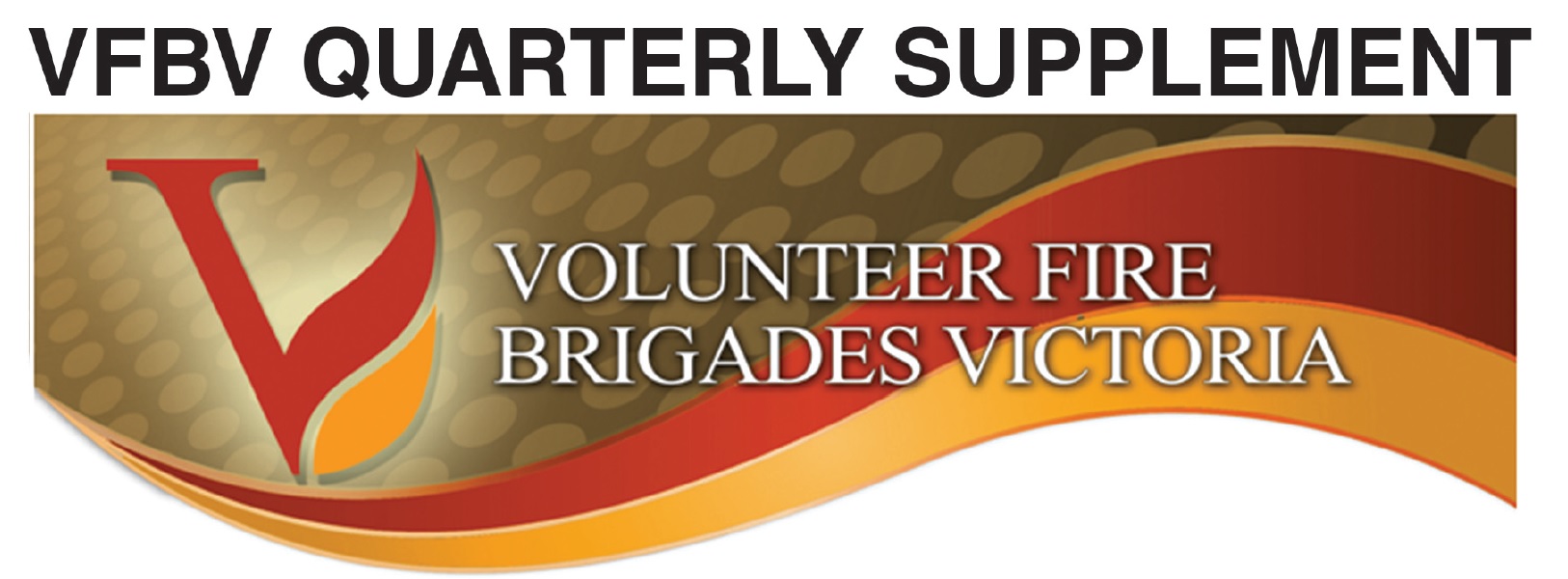
Included with the September 2022 edition of Fire Wise is the latest edition of the VFBV Quarterly Supplement.
The Quarterly Supplement contains 16 pages of relevant news, updates, information on current issues being pursued by VFBV on behalf of members. It also includes additional resources or updates that are available via our website.
An electronic copy of the Quarterly Supplement can be downloaded here.
Brigade Captains and Secretaries, Group Officers and Group Secretaries as well as VFBV delegates are requested to please take the time to read this and future editions, and table at your upcoming meetings for the benefit and knowledge of your members.
AGM
This years annual general meeting will be held on the afternoon of Sunday 2nd October 2022 following State Council.
In order to comply with health guidelines and contact tracing requirements, any delegates intending to attend this year’s AGM are required to register their details with the VFBV office by 30 September.
The office can be reached via (03) 9886 1141 or via email at This email address is being protected from spambots. You need JavaScript enabled to view it.
Tony’s Trek

On 30 September 2022, Inspector-General for Emergency Management (and Chair of the Emergency Services Foundation) Tony Pearce will start Tony’s Trek – a 1440km solo charity walk through Victoria to support new mental health initiatives to benefit our emergency management community.
Covering the area from Melbourne to Mallacoota and across the Alpine Range to Wodonga before heading back to Melbourne, Tony’s Trek aims to raise awareness and support for building collaborative sector-wide mental health initiatives led by the Emergency Services Foundation (ESF).
VFBV encourages brigades and groups to get behind Tony’s Trek, and think about how they might be able to assist with fundraising and promoting the initiative as Tony’s Trek makes its way across the route.
Posters and promotional material are available to support brigades get behind this important initiative. To find out more, donate or get involved go to www.esf.com.au/tonys-trek/
Recent articles on the VFBV website
Vale – Her Majesty The Queen
Open for Consultation Dashboard
Australian Fire Danger Rating System
Volunteers welcome Fiskville Redress Scheme
Enjoy the VFBV monthly newsletter?
If you enjoy reading the VFBV newsletter each month, why not share it with your fellow volunteers?
Either share this page with others who may enjoy the articles or encourage other volunteers to sign up to receive their own copy via email each month here.
What is AFDRS (Australian Fire Danger Rating System)
The new Australian Fire Danger Rating System (AFDRS) is consistent across Australia, easier to understand and will provide clearer advice on how to stay safe.
The new system has four rating levels instead of the previous six:
Moderate
High
Extreme
Catastrophic

Clear, easy to follow advice is associated with each level.
As it's a national system it will not matter where you live, travel or are across the country, Fire Danger Rating will be communicated the same. AFDRS was officially launched on 1st September 2022.
Calculating operational readiness triggers and Total Fire Ban declarations under the AFDRS
The AFDRS will be launched in September 2022 and the Bureau of Meteorology fire danger forecasts will be presented in the new format with immediate effect.
Victorian fire agencies will continue to calculate the old Fire Danger Index (FDI) to consider alongside the new AFDRS to determine operational readiness triggers and Total Fire Ban declarations.
This measure will continue to test the accuracy of the AFDRS in its introductory phase against varying fire seasons and conditions.
The CFA Chief Officer will consider both the AFDRS and the old fire danger ratings when making Total Fire Ban declarations.
Fire Danger Signs update
Brigades and community members will soon see some changes occurring to the roadside Fire Danger Signs. Each road sign across the state will be covered with a sticker, stating that “Fire Danger Ratings are changing”. The arrow and padlocks will be removed from the signs when the sticker is installed. New hardware will be issued when the signs are physically replaced.
Replacement of signs will commence in September. Works will commence in areas likely to have fire danger periods declared first, starting in the North West with all signs being replaced by early December.
If your brigade has a query about signage location, please speak to your District staff.
CFA community facing resources updated for AFDRS
The CFA website now shows Fire Danger Ratings information detailing the new rating levels and the publications that have been updated to reflect AFDRS are now all available. Publications that have not been reviewed to date have been removed from the website until they can be updated to avoid any public confusion.
Brigades that wish to order new Publications should contact their District Community Engagement Coordinator, directly.
As we approach summer it is important to ensure that current publications are available to the community. Please ensure that outdated publications are removed from Brigade and community locations. All new publications have a version and date produced clearly visible on the cover of the document.
A CFA AFDRS Stakeholder Kit is now available. In this kit we have outlined all of the AFDRS primary key messages including social media content (sorted by theme) , relevant copy and assets to go with each post. It has been developed to support our stakeholders to promote AFDRS messages through their own channels and networks. Please feel free to share this kit far and wide with your networks.
The Stakeholder Kit is available from here.
More Information
More information, including frequently asked questions is available to CFA members via: https://www.members.cfa.vic.gov.au/programs/afdrs
The 2023 State Championships will again be held in Mooroopna between 18 March and 26 March.
The Urban Junior State Championships will be held on 18 and 19 March, followed by the Urban Senior, Rural Senior and Rural Junior State Championships on 25 and 26 March. During the week between the two events, the venue will be utilised for pre-planned community events including visits from schoolchildren to learn about fire safety and the role of CFA.
The championships attract a broad range of members and act as the largest annual ‘celebration of CFA’ and include community events, displays, skills maintenance opportunities and a large CFA corporate attendance.
Competing in championship is now more flexible than ever. VFBV is encouraging brigades to enter for the event with particular focus on encouraging brigades who have not competed for some years to put together a team, combine a group of brigades for a team or enter into just specific events if they don’t want to compete across the whole program.
CFA Chief Officer Jason Heffernan said the success of this year’s Championships, and associated events and displays, set the foundation for a more successful event in 2023.
“There were so many highlights this year it would be unfair to single one out. Whether it was the spectacle of the torchlight procession, the competitiveness of the events, the introduction of more women’s events, the display of CFA appliances and technologies, the visits of schoolchildren midweek, or the engagement of community members across the two weekends – the Championships were a hit,” Jason said.
“We know what our members are capable of, however the State Championships remain the premier event to showcase the skills, professionalism and talent of CFA volunteer firefighters.”
CFA Chief Executive Officer Natalie MacDonald was enthusiastic about having more people, both members and non-members, experience the atmosphere created by the events.
“CFA and the VFBV have done a tremendous job in turning the combined events into a celebration of all things CFA. It was wonderful to see how it all came together at the venue and in the community,” Natalie said.
“We expect to see even more support in 2023.”
VFBV Chief Executive Officer Adam Barnett encouraged brigades to enter teams to compete at state level, but also for non-competing brigades to consider attending.
“After the restrictions of COVID, it was great this year to have non-competitors be able to attend the Championships,” Adam said.
“We are looking forward to again seeing as many of you as possible enjoying the festivities of the event and supporting those participating, with plenty of activities for non-competing brigades also – such as checking out new truck designs and trying the latest equipment being trialled for service.”
R U OK? Day falls on the 8th of September this year, with this year's message being ‘Ask R U OK? No qualifications needed.’
R U OK? is a national suicide prevention initiative that encourages Australians to connect with people in the community, your colleagues, friends, family, and loved ones – encouraging them to generate constructive discussion about issues such as suicide, depression, isolation and mental illness.
The aim is to encourage people to stay connected and have meaningful conversations that can help others through difficult times in their lives.
The 'No qualifications needed' theme this year is based on research that indicates four in ten Australians feel asking someone “are you OK?” is a conversation better had with an expert.
However, R U OK? want you to know you don’t need qualifications to have an R U OK? conversation.
The work of health professionals is vital, and their value cannot be underestimated however we can all play a role in supporting the people in our world.
You don’t need to be an expert to have an R U OK? conversation. Listening and giving someone your time might be just what they need to help them through.
The R U OK? charity has some terrific resources to help equip you for those conversations, and some coaching to help get you ready to have a conversation which could literally change someone’s life.
Available from www.ruok.org.au resources walk you through four easy steps of; ask; listen; encourage action; and check in. There are webinars and role plays to help you, and a really important section in the ‘How to Ask’ area that can help you get ready. Questions such as if you are ready to ask, are you prepared for where the conversation may go and how best to pick your moment and environment.
There are also specific resources available to emergency service personnel, with the sub-theme of "Are they triple ok" referencing the triple zero environment of our work. You can access these resources by visiting https://www.ruok.org.au/are-they-triple-ok-resources
Remember, that all members including your immediate family members have free access to CFA’s wellbeing and welfare services 24 hours day, 7 days a week. You can access these via 1800 959 232 or via www.cfa.vic.gov.au/wellbeing
This year’s R U OK? day is a great reminder of the incredible power each of you have to make a real difference in someone else’s life. If you have noticed someone in your life who might be experiencing some personal difficulties or is struggling with life’s current uncertainties (COVID-19 isolation for example) your genuine support and compassion can have a huge influence. Use R U OK? day to remind ourselves not to wait until someone is visibly distressed or in crisis before we act and check-in.
This page provides a summary of items that are currently open for broad consultation and feedback is being sought.
Members are encouraged to review any of the items below and provide feedback/comment and/or suggestions ASAP.
We encourage members not to wait until deadlines to provide feedback, but rather provide it as early as possible which will give us a chance to conduct further research that may assist us being able to advocate more strongly for your desired outcome.
All feedback is used to inform and influence formal VFBV positions as well as used to influence CFA positions and thinking during the deliberative process. If we need to use your feedback to demonstrate or illustrate the views of members, your personal details will not be shared with CFA, and feedback will always be de-identified to protect your privacy.
All volunteers are welcome and encouraged to provide feedback.
How to provide feedback:
It would be preferred that members provide feedback ASAP, so that it can be received incrementally, allowing us enough time to consolidate, identify trends and research issues raised by members.
Feedback can be provided via:
- Emailing to This email address is being protected from spambots. You need JavaScript enabled to view it.
- Using the unique online survey
- Your local VFBV District Council or your local VFBV Support Officer
- By Post: 9/24 Lakeside Drive, Burwood East VIC 3151
- By Fax: (03) 9886 1618
Feedback does not need to be long or detailed, but if you do have the time to make substantive comment that is always welcome.
If you generally support a principle or policy, then a quick note letting us know would also be helpful. Similarly, let us know if you do not support it, or which aspects of it you don't support.
Where indicating non-support, it would be helpful to understand the key reasons why, and even a couple of brief bullet points would be adequate. Likewise, if you would prefer to provide a more detailed response, or mark-up and suggest changes to the documents, all that would be welcome also.
Please remember to provide feedback in support as well as against. If we only hear from those who are against, it will be harder to determine the general comfort level of members with the proposals.
|
Annual Volunteer Survey The VFBV annual vol survey is an annual snapshot of volunteer opinion and welfare. It has become a critical tool in monitoring short-and long-term trends, and the effectiveness of initiatives aimed at improving CFA volunteer engagement and wellbeing. The Survey is an initiative by VFBV designed by and for volunteers to help capture and communicate fundamental issues as volunteers see them. It is conducted annually, with the first survey conducted in 2012. The Survey is a critical and important tool that gives CFA and other decision makers clear feedback, directly from volunteers about the issues that are affecting their welfare and efficiency. For many volunteers this survey is one of the key opportunities to have their voice heard, both individually and collectively. |
 |
|
November 2024 Standard Operating Procedures (SOP's)
Formal consultation has commenced on eight Standard Operating Procedures (SOP's) : SOP 9.03 - Incident Briefings and SMEACS-Q |
 |
|
October 2024 Standard Operating Procedures (SOP's)
Formal consultation has commenced on two Standard Operating Procedures (SOP's) : SOP 10.30 - Response at Solar Facilities |
 |
|
September 2024 New Standard Operating Procedures (SOP's)
Formal consultation has commenced on two new Standard Operating Procedures (SOP's) covering electrical safety: SOP 10.28 - Lithium-ion Batteries Undergoing Thermal Runaway |
 |
|
Revised Standard Operating Procedures (SOP's) Formal consultation has commenced on the following revised Standard Operating Procedures (SOP's): SOP 3.01 Management of Junior Members Click here to access the drafts and further details on how to provide feedback. |
 |
|
Annual Volunteer Survey The VFBV annual vol survey is an annual snapshot of volunteer opinion and welfare. It has become a critical tool in monitoring short-and long-term trends, and the effectiveness of initiatives aimed at improving CFA volunteer engagement and wellbeing. The Survey is an initiative by VFBV designed by and for volunteers to help capture and communicate fundamental issues as volunteers see them. It is conducted annually, with the first survey conducted in 2012. The Survey is a critical and important tool that gives CFA and other decision makers clear feedback, directly from volunteers about the issues that are affecting their welfare and efficiency. For many volunteers this survey is one of the key opportunities to have their voice heard, both individually and collectively. Click here to complete this year's survey.
|
 |
|
New Standard Operating Procedure (SOP) Fire Medical Response (FMR) Formal consultation has commenced on a new SOP to cover FMR. Click here to access the draft and further detail on how to provide feedback. |
 |
|
Revised Standard Operating Procedures (SOP's) Driving Formal consultation has commenced on six revised Standard Operating Procedures (SOP's) Driving: SOP 12.01 Driving or Traveling in CFA and ESO Vehicles Click here to access the drafts and further details on how to provide feedback. |
 |
|
Unreasonable Complaints Policy Formal consultation has commenced on a new policy proposed by CFA to cover 'Unreasonable Complaints'. CFA is seeking to ensure that there is a clear framework in place for defining and managing those circumstances in which a complaint might be considered ‘unreasonable’ that can be clearly communicated to members and the public and ensure it is applied consistently across CFA. Click here for full details of the proposed policy and how to provide feedback. |
 |
|
Revised Standard Operating Procedures (SOP's) Formal consultation has commenced on six revised Standard Operating Procedures (SOP's): SOP 6.02 Crew Composition (16 and 17 year olds) Click here to access the drafts and further details on how to provide feedback. |
 |
|
Working with Children Clearences Policy Formal consultation has commenced on amendments proposed by CFA to their policy for Working with Children Clearances. (WWCC) For the purposes of consultation, while the majority of roles in CFA do not require a WWCC under the Worker Screening Act, CFA is proposing to require all staff and volunteers to have a valid working with children check even if they are not legally required to. The policy proposes a phased approach, requiring all members of a brigade management team and various other roles to hold a WWCC by June 2024. The policy then extends this requirement to all group and deputy group officers, as well as all members of a brigade that has members under 18, requiring them to hold a WWCC from June 2025. The final phase requires every volunteer to hold a WWCC from June 2026 as a condition of membership. Click here for full details and a link to the online survey. Due Monday 4th September, 2023 |
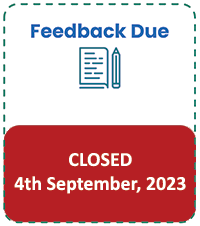 |
|
Brigade/Group Finance Policy Suite Formal consultation has commenced on a proposed Brigade/Group Finance Policy Suite, which is intended to replace current brigade and group finance policies. The proposed brigade finance policy suite enhances and clarifies processes surrounding the management of brigade finances. The proposed policy suite maintains alignment with the Country Fire Authority Act 1958 (the CFA Act) and Country Fire Authority Regulations 2014 (CFA Regulations), which prescribe the manner in which all brigades and groups must operate Click here for full details and a link to the online survey. Due Monday 14th August, 2023 |
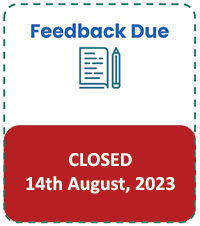 |
|
Radio Allocation Policy & Procedures Formal consultation has commenced on a revised suite of policies and procedures for radio allocation in preparation for the planned rollout of CFA's replacement to the operational radio fleet. - The policy establishes guidelines to ensure CFA is allocating radios in the most effective, practical and systematic way - The policy establishes that CFA will monitor underutilized radios and reallocate them instead of issuing additional radios in the first instance - The procedure outlines the Radio Operational Justification criteria - Schedule 1 provides the proposed radio allocation matrix - Schedule 3 is the proposed Operational Justification Assessment guide Click here for full details and a link to the online survey. Due Wednesday 15th March, 2023 |
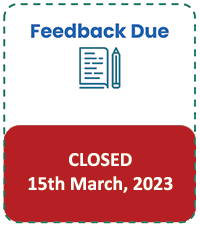 |
|
Alcohol and Other Drugs Policy Formal consultation has commenced on a draft CFA Policy covering the use of Alcohol and other drugs. For the purposes of consultation, CFA has advised that this policy:
Click here for full details and a link to the online survey. Due Monday 8th May, 2022 |
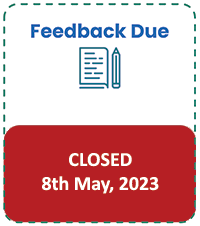 |
VFBV has welcomed today’s announcement by the Victorian Government of the establishment of a Fiskville Redress Scheme to support Fiskville affected persons.
The scheme will open on Monday 5th September 2022, and addresses a key recommendation from the 2016 Parliamentary Enquiry into Fiskville.
The enquiry recommended that the Victorian Government establish a dedicated redress scheme offering a range of options such as access to health services, a financial payment and a meaningful apology.
While it has taken a while, this is an important milestone, especially for those still dealing with the physical and mental effects of their time at Fiskville. In our discussions with Government, we have emphasised our support for a victim centred approach, and that provides support for people to ensure the evidentiary burden is not onerous or unachievable, that volunteers and members of the community are eligible to apply and that the scheme provides acknowledgement and reassurance to those impacted that they will be supported.
Further details of the scheme will be shared following the schemes launch early next month, including eligibility, how to apply and other frequently asked questions.
In the same way that firefighting is an inherently dangerous activity, the exposure to toxins released during combustion and sometimes the agents used to extinguish fires also pose a large risk to firefighters. The historic Fiskville experience demonstrates that these toxic exposures can be present in hot fire training scenarios in just the same way as random fire events. All firefighters must be protected from these exposures and supported if they suffer illness as a result of exposure.
As we said in our March 2015 submission to the enquiry - whatever underlying causes contributed to the exposure of the firefighters attending Fiskville in the past, one thing that must be resolved is the fair protection of any firefighters who may be suffering illness as a result of past practices.
Today’s announcement is an important step in honouring that commitment, and honouring our firefighters both volunteer and career.
UPDATE (05/09/2022)
The scheme is now open, and accepting applications for people who had prolonged exposure to toxic substances at the former Fiskville Training College site between 1971 and 2015.
The scheme offers a range of options including a financial payment, and access to mental health counselling and medical health support.
You can contact the support team for a confidential discussion or assistance with your application:
1300 315 198 Between 9:00 am-4:30 pm, Monday-Friday (excluding public holidays)
or via This email address is being protected from spambots. You need JavaScript enabled to view it.
The scheme is administered by the Department of Justice and Community Safety and is independent of the Country Fire Authority.
To download an application form, or review further information, you can visit: https://www.vic.gov.au/redress-fiskville
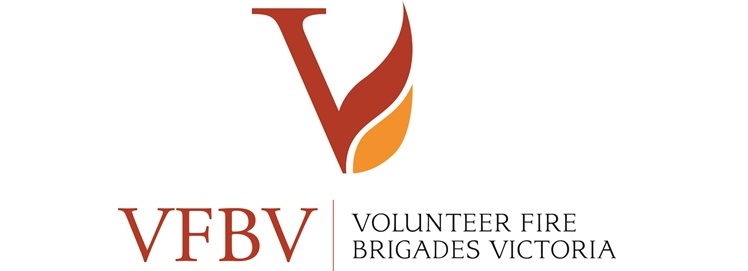 |
About VFBV: VFBV is established under the Country Fire Authority Act and is the peak body for CFA Volunteers in Victoria. VFBV works tirelessly to represent, advocate and support CFA volunteers to the CFA Board and management, governments, ministers, members of parliament, councils, instrumentalities, business and the public. Our vision is for Strong Volunteerism, Embraced to Build Community Resilience for a Safer Victoria. |
Media: Quotes may be attributed to VFBV CEO, Adam Barnett on behalf of Volunteer Fire Brigades Victoria.
Fire Medical Response
By Adam Barnett, VFBV Chief Executive Officer
After long advocacy by VFBV, I welcome the recent CFA and Government announcements concerning the establishment of the Fire Medical Response (FMR) program across 50 locations across Victoria.
This program will continue the proud tradition of the Emergency Medical Response (EMR) program that has been operating within CFA since 2008 and saw CFA partnered with Ambulance Victoria to simultaneously dispatch a brigade along with an ambulance for specific medical emergencies requiring early interventions such as CPR and defibrillation, and where fire brigade response was predicted to be faster than Ambulance Victoria response.
These programs recognise that for every minute that CPR and defibrillation is delayed, a person’s survivability from cardiac arrest reduces by 10 percent.
It would be an understatement to say the introduction of medical response to CFA has been a long and challenging road.
EMR was first introduced to the Metropolitan Fire Brigade (MFB) as a pilot back in 1998 and was formally adopted and introduced in 2001.
In early 2008, CFA received funding and approval to conduct a medical response pilot across 10 CFA locations. Five fully volunteer locations and five integrated locations.
VFBV supported the program from inception and worked closely with the pilot brigades to ensure the program was safe, effective and sustainable.
In February 2008 the five fully volunteer locations commenced the program, however the five integrated locations were prevented from participating due to a grievance lodged by the staff’s representative body preventing career firefighters from participating. It would be another three years for these disputes to be resolved. The five integrated locations joined the pilot on 25 September 2011.
With 10 brigades now fully online and participating, a formal 12-month evaluation of the program was finally able to be conducted between September 2011 and September 2012.
The results of the pilot demonstrated a valuable collaboration between Ambulance Victoria and CFA and observed significant improved response times to EMR eligible events across the pilot areas, as well as a corresponding trend towards increased survival for patients who were defibrillated by CFA crews.
In 2014, Ambulance Victoria conducted a detailed analysis of AV response to cardiac arrests and identified a further 156 CFA priority locations across Victoria that it felt would provide improved patient outcomes after considering the number of EMR events and response time differentials between CFA and AV. CFA then sought expert independent analysis to model a five-year wider rollout across the 156 identified locations.
The independent analysis modelled the financial impacts of an expanded EMR program and confirmed that it cost 85% less per volunteer brigade to rollout EMR when compared to an integrated location and the vast majority of priority locations were serviced by fully volunteer brigades.
Therefore, VFBV was surprised when in May 2015 the Victorian Government announced that it would only be expanding EMR to CFA’s career staff at integrated locations.
VFBV continued its advocacy and raised its concerns with Government and CFA. For example we used the decisions surrounding EMR’s introduction to CFA as a case study in our 2015 submission to the Victorian Government’s fire services review.
VFBV continued to advocate for the support and expansion of medical response, long before the pandemic squeezed our health services. I certainly wish to thank all brigades, members and other stakeholders, including individual MPs who have raised the issue and contributed to this work over the years.
To have the program finally endorsed and funded is a wonderful result not just for CFA but for the wider Victorian community. Given CFA has the largest geographic footprint of any emergency service in Victoria this program will result in significantly improved community safety outcomes. I also wish to thank and acknowledge the support of Emergency Services Minister the Hon. Jaclyn Symes MP who has recently approved the programs expansion.
In early discussions we have requested that CFA work with us to develop a comprehensive informed decision-making model that clearly outlines the additional commitments of taking on FMR, as well as the likely impacts both positive and negative. And while all brigades no doubt want to support their communities in times of need, our statutory obligations of ensuring our brigades are available for fire response must remain a priority. This may mean some locations may not be suitable for additional services until other capabilities are further enhanced and the model will be an opt-in one to ensure brigades are supportive and willing to take on the additional responsibilities.
Given the limited funding of $3.9 million is available to expand the program to 50 locations across the State, it is also important that decisions on locations are informed by Ambulance Victoria priorities. While we will continue to advocate for the program to be expanded, like all programs that have limited funding we will need to ensure the first 50 locations will provide maximum benefit from scarce public funds.
As it is also envisaged that FMR will be developed to support regional and rural locations in addition to metropolitan areas, there will need to be careful consideration of how longer AV response times in regional areas will impact on the program and responding crews.
In this regard, VFBV has requested that CFA adopt a highly consultative model similar to how the original CFA EMR program was developed to ensure the FMR program is developed in partnership with brigades. VFBV already has proven success in this area and is looking forward to the establishment of strong formal consultative mechanisms and a collaborative and constructive approach between the agencies and stakeholders.
In addition, VFBV has also requested and received from CFA an assurance that the roll-out of FMR will in no way impact upon the current EMR program that is still operated by seven existing CFA brigades. CFA has committed to VFBV that status quo of the CFA EMR program will be maintained while FMR is developed and no changes will be proposed without further consultation. This should provide peace of mind for those brigades that are concerned of any negative impacts to the existing program.
All in all, the introduction of fire medical response is a positive development and is sure to be embraced by many across the state. While the program is in its early consultative stages, I would urge brigades to be patient while the introductory work is undertaken.
I also use these developments as a further example of volunteer resilience and persistence to the ultimate benefit of our communities. The expansion of the program has not come easily or quickly but despite setbacks is not something we have ever given up on.
This follows the long advocacy by VFBV for defibrillators to be rolled out to all brigades and primary appliances across the state for the safety of firefighters and all those on the fireground. This goal has finally been achieved with the CFA Donations Trust recently overseeing the provision of a further 1,137 defibrillators and the CFA Public Fund partnering with the Trust to fund the ongoing maintenance of all brigade defibs into the future. And while I’m disappointed that this program has had to be funded through community donations – I am exceptionally pleased to finally see defibs in all brigades finally a reality.
I urge members to embrace our collective successes as we continue to identify and prioritise areas of focus and continue to work on improving community outcomes. Things can move so slowly within our sector that is more important than ever to acknowledge and celebrate the good.
In other news, discussions are also continuing between CFA and VFBV on introducing the ability for brigades to accept tap and go payments for fundraising. Restrictive policies that have prevented brigades from being able to accept electronic donations and payments has long been a key frustration raised by brigades, with the need for new COVID safe practices only reinforcing the need for alternatives to cash.
Following the attendance of CFA’s new Group General Manager Strategic Services Robyn Harris and CFA CEO Natalie MacDonald to VFBV State Council in December 2021, I have witnessed CFA embarking on renewed efforts to resolve this long-standing issue. My recent discussions with CFA’s new Chief Financial Officer Greg Forck have confirmed pleasing progress, and I believe announcements will be made shortly once some final arrangements are finalised.
I also wish to remind members that there are several topics open for feedback at the moment, and we are seeking volunteer involvement and feedback on some important operating procedures, as well as the chief officers’ minimum requirements amongst others.
This year is also the tenth anniversary of the highly successful VFBV Volunteer Welfare and Efficiency survey and we are inviting any suggestions or feedback on how the survey may be improved or adapted. While we have enjoyed the benefits of a stable base line of questions and topics that allow for long term trend analysis, we also want the annual survey to be contemporary and relevant to members and decision makers alike. So, if you have any suggestions, please raise these with your VFBV State Councillor or Support Officer.
Stay involved, continue contributing and hold your heads high. Keep up the good work.
CFA Board
VFBV welcomes the appointment of three new board members to the CFA Board. The two new Government nominees are Tony Peake and Rachel Thomson who replace Dr Gillian Sparkes and Simon Weir.
VFBV is also pleased to see Ross Coyle AFSM returning to the Board as a volunteer nominee, replacing Kent Griffin who choose not to seek re-nomination.
VFBV congratulates all new board members and offers out sincere thanks to the outgoing board members for their service, with particular thanks to Kent Griffin who joined the board in 2019 as a volunteer nominee.
Budget reallocation
VFBV congratulates CFA on the recent announcement that end of financial year corporate budget savings and reallocations has resulted in an extra $2.8 million dollars being reallocated to fund additional service delivery initiatives to benefit brigades and groups.
Under this initiative, each Group will receive a multipurpose Thermal Imaging Camera (3MV320) to support both bushfire and structural settings, as well as a Kestral Fire Weather Meter 5500 which enhances groups capability to monitor local weather and fire conditions.
Rescue brigades are also receiving 50T lift jacks that will enhance their operational rescue capability.
VFBV believe this shows a renewed commitment by CFA to maximise CFA funding and supporting brigades and members through direct investment in equipment that enhances our capability and protects our communities. VFBV congratulates the CFA CEO and CO on these initiatives.
Open for Consultation
CFA has commenced consultation on a proposed Surveillance Device Procedure, the Chief Officer's Minimum Requirements for Operational Response and a revised SOP 5.04 - Service Hose Testing and Coupling Inspection. VFBV is seeking feedback from individuals, brigades, groups and District Councils to inform and influence VFBV's formal positions and feedback provided to CFA.
Feedback on each of the items currently being consulted on can be provided via your District Council, local VFBV Support Officer or to This email address is being protected from spambots. You need JavaScript enabled to view it. by the dates listed below. VFBV encourages that feedback be provided ASAP so that early submissions can help inform if any additional research needs to be undertaken before a VFBV position is formalised.
Surveillance Device Procedure
Formal consultation has commenced on a proposed procedure to cover the use of Surveillance Devices. This procedure aims to provide appropriate guidance to CFA members in the installation and use of surveillance devices and ensure they are installed and used in compliance with legislation and privacy principles.
As VFBV have been awaiting this procedure for some time, we have agreed with CFA to an expedited consultation timeline in order to allow an interim procedure to be implemented that will allow brigades and groups who have been waiting for this equipment to be issued it ASAP and in time for this fire season.
The proposed Surveillance Device Procedure can be found on the VFBV website for review.
Feedback can be provided by individuals, brigades, groups and District Councils to This email address is being protected from spambots. You need JavaScript enabled to view it. or to your local VFBV Support Officer.
Responses due by Wednesday 7th September 2022
Chief Officers Minimum Requirements for Operational Response
VFBV is seeking brigade, group and individual feedback from volunteers on the Chief Officer’s minimum requirements for operational response.
The CFA Chief Officer has invited VFBV to make submission on the ongoing application of the Chief Officer’s minimum requirements to participate in fireground operations which are currently: General Firefighter (or minimum skills for those who predate GFF); the annual entrapment drill (SOP 9.32); and the three yearly tree hazard awareness certification.
Volunteers are also encouraged to attend VFBV District Council meetings in order to hear the perspectives of others in your local district.
Further details on how to make a submission are available on the VFBV website or through your local District Council or VFBV Support Officer.
Responses due by Monday 12th September 2022
Revised SOP 5.04 – Service Hose Testing and Coupling Inspection
Formal consultation has commenced on amendments to SOP 5.04 - Service Hose Testing and Coupling Inspection. For the most part, the changes proposed are relatively minor in nature, with the most significant being some additional stipulations with regard to persons authorised to perform hose repair covered in item four of Schedule 1.
VFBV is seeking input from individuals, brigades, groups and District Councils providing any feedback, suggestions or amendments including indicating support/non-support for the proposed changes.
The revised SOP can be viewed on the VFBV website.
Feedback can be provided to This email address is being protected from spambots. You need JavaScript enabled to view it. or to your local VFBV Support Officers.
Responses due by Monday 3rd October 2022.
Financial Reporting reminder
A reminder to brigades and groups that their end of financial year reporting requirements to CFA are due. Cash and investment balances as at 30 June were due no later than 1 August, and financial statements are due no later than 31 December 2022.
The new online platform that launched on 1 July of this year has been very popular, with the new platform providing an electronic option for those that would prefer to upload the documents via an online portal.
The new portal is opt-in and brigades/groups may still use paper forms and submission should they still prefer. To access the online portal, as well as templates for financial reporting, members can access the brigade finance page via Members Online.
Log in to www.members.cfa.vic.gov.au and select “Finance Documents and Templates” from the “Policy and Procedure” drop down menu at the top of the page.
Spirit of CFA Award Winners

VFBV congratulations all members who received a Spirit of CFA Award at the recent awards ceremony.
The Spirit of CFA Awards are held every two years, and with the 2020 ceremony being delayed due to COVID-19 restrictions this years ceremony celebrated four years of winners.
The highlight of the awards is the Spirit of CFA Living the Values Gold Award which is awarded to CFA members who have and continue to exemplify CFA’s values, with Peter Clarkson winning the 2020 award and Paul Spinks the 2022 award.
Visit the VFBV website to view stories on each of the winners from the 2020 and 2022 awards, these pages will continue to be updated as more stories are published.
Congratulations once again to all the Spirit of CFA Award winners.
Affiliation
Thanks to all those brigades who paid their fees prior to 31st July and were automatically entered into the draw to win prizes donated by GAAM Emergency Products and Powdersafe. Winning brigades/groups will be announced in the next edition!
The number of brigades affiliating with VFBV for 2022/23 is on track to match record numbers of the past five years, a sign of continued support for VFBV’s work on behalf of all CFA volunteers.
Remember, by affiliating you are making a vital contribution to the important work we do on behalf of all CFA volunteers. Advocacy, support and the provision of trusted and credible advice are all strengthened when members work together and share a unity of purpose.
If you are not sure whether your Brigade or Group’s VFBV Affiliation or Welfare Fund subscription are up to date, please contact your Secretary urgently, as we encourage all those who have not yet affiliated to do so as soon as possible.
For any enquiries, contact your VFBV Support Officer, State Councillor or call us at the office on 03 98861141.
Fire Wise – August 2022 online only edition
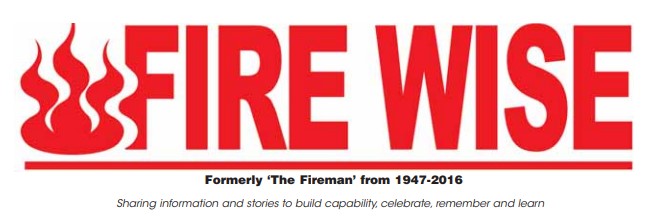
The August 2022 edition of Fire Wise has been published online only, this edition and past editions are available from the Fire Wise website.
You can support Fire Wise and the role it plays as an independent voice in keeping volunteers informed by becoming a subscriber. To become a Fire Wise subscriber visit the Fire Wise website or contact the Managing Editor of Fire Wise, Gordon Rippon-King either by phone 0402 051 412 or email This email address is being protected from spambots. You need JavaScript enabled to view it.
Tony’s Trek

On 30 September 2022, Inspector-General for Emergency Management (and Chair of the Emergency Services Foundation) Tony Pearce will start Tony’s Trek – a 1440km solo charity walk through Victoria to support new mental health initiatives to benefit our emergency management community.
Covering the area from Melbourne to Mallacoota and across the Alpine Range to Wodonga before heading back to Melbourne, Tony’s Trek aims to raise awareness and support for building collaborative sector-wide mental health initiatives led by the Emergency Services Foundation (ESF).
‘Unfortunately, trauma often results in mental health injury with lasting impacts throughout their career and into retirement’, says Tony.
‘I hope that Tony’s Trek will raise awareness of the importance of supporting the mental health of Victoria’s 139,00 strong emergency management community who support Victorians before, during and after emergencies’, he says.
Recovery from mental health injury is a personal journey that involves taking one step at a time.
Despite considerable investment in treatment programs and services, there is still much work required to help prevent mental injury.
Funds raised from Tony’s Trek will be used to enable ESF to deliver its three prevention-focused mental health initiatives, those currently under consideration include – a Lived Experience Program, a Pilot Residential Wellbeing Program, and an ambitious research program.
VFBV Chief Executive Adam Barnett encouraged brigades and groups to get behind Tony’s Trek, and think about how they might be able to assist with fundraising and promoting the initiative as Tony’s Trek makes its way across the route.
'VFBV shares Tony's passion and commitment to support mental health initiatives that support CFA volunteers and all emergency management personnel across the sector.' Adam said.
'I highly encourage brigades and other emergency service units to support the Trek and make it a success in acting as a beacon of hope for the many of Victoria's emergency service members routinely impacted by our selfless service to our communities.'
Posters and promotional material are available to support brigades get behind this important initiative.
To find out more, donate or get involved go to www.esf.com.au/tonys-trek/
State Memorial Service for Jane Garrett
A State Memorial Service for the Honourable Jane Garrett will be held at the Brunswick Town Hall at 11am on Friday 2 September 2022.
Doors for the State Memorial Service will open at 10am with the Service commencing at 11am.
In lieu of floral tributes and in keeping with Ms Garrett’s passion for community, her family have asked for contributions to be made to the Smith Family at www.thesmithfamily.com.au/donate
The service will also be live streamed at www.vic.gov.au/jane-garrett for those unable to attend in person.
Recent articles on the VFBV website
Feedback requested - Surveillance Device Procedure
Feedback requested - SOP 5.04 Service Hose Testing and Coupling Inspection
Feedback requested – Chief Officer’s Minimum Requirements
Spirit of CFA Awards – 2020 Winners
Spirit of CFA Awards – 2022 Winners
VFBV Board announces new State President and Vice President
Enjoy the VFBV monthly newsletter?
If you enjoy reading the VFBV newsletter each month, why not share it with your fellow volunteers?
Either share this page with others who may enjoy the articles or encourage other volunteers to sign up to receive their own copy via email each month here.
More...
On 30 September 2022, Inspector-General for Emergency Management (and Chair of the Emergency Services Foundation) Tony Pearce will start Tony’s Trek – a 1440km solo charity walk through Victoria to support new mental health initiatives to benefit our emergency management community.
Covering the area from Melbourne to Mallacoota and across the Alpine Range to Wodonga before heading back to Melbourne, Tony’s Trek aims to raise awareness and support for building collaborative sector-wide mental health initiatives led by the Emergency Services Foundation (ESF).
‘Unfortunately, trauma often results in mental health injury with lasting impacts throughout their career and into retirement’, says Tony.
‘I hope that Tony’s Trek will raise awareness of the importance of supporting the mental health of Victoria’s 139,00 strong emergency management community who support Victorians before, during and after emergencies’, he says.
Recovery from mental health injury is a personal journey that involves taking one step at a time.
Despite considerable investment in treatment programs and services, there is still much work required to help prevent mental injury.
Funds raised from Tony’s Trek will be used to enable ESF to deliver its three prevention-focused mental health initiatives, those currently under consideration include – a Lived Experience Program, a Pilot Residential Wellbeing Program, and an ambitious research program.
VFBV Chief Executive Adam Barnett encouraged brigades and groups to get behind Tony’s Trek, and think about how they might be able to assist with fundraising and promoting the initiative as Tony’s Trek makes its way across the route.
'VFBV shares Tony's passion and commitment to support mental health initiatives that support CFA volunteers and all emergency management personnel across the sector.' Adam said.
'I highly encourage brigades and other emergency service units to support the Trek and make it a success in acting as a beacon of hope for the many of Victoria's emergency service members routinely impacted by our selfless service to our communities.'
Posters and promotional material are available to support brigades get behind this important initiative.
To find out more, donate or get involved go to www.esf.com.au/tonys-trek/

Formal consultation has commenced on a proposed procedure to cover the use of Surveillance Devices. This procedure aims to provide appropriate guidance to CFA members in the installation and use of surveillance devices and ensure they are installed and used in compliance with legislation and privacy principles.
The draft procedure is available for download from the bottom of this page for the purposes of consultation.
We have been awaiting this draft procedure for quite some time, as the lack of a procedure has caused delays in the provision of Brigade and Group dashcams and the like, including some equipment and security systems from recent grants programs like the district pick list program that was run by the CFA & Brigades Donations Trust.
As such, we have agreed with CFA to an expedited consultation timeline in order to allow an interim procedure to be implemented that will allow brigades and groups who have been waiting for this equipment to be issued it ASAP and in time for this fire season.
As part of this arrangement, we will consult on the draft procedure over the next 5 weeks. Following approval, the procedure will be issued with a review date set 12 months from the date of issue. (normally three-years) This will ensure any comment or feedback that may arise after the initial consultation period, can be reviewed then.
As such, we request your urgent attention and encourage feedback and/or endorsement of the draft procedure ASAP during the consultation period.
Members are encouraged to review the draft proposed SOP and provide any feedback/suggestions/amendments including indicating support/non-support for the proposed changes.
Feedback can be provided by individuals, brigades and groups.
All feedback is used to inform and influence formal VFBV positions as well as used to influence CFA positions and thinking during the deliberative process. If we need to use your feedback to demonstrate or illustrate the views of members, your personal details will not be shared with CFA, and feedback will always be de-identified to protect your privacy.
We encourage members not to wait until deadlines to provide feedback, but rather provide it as early as possible which will give us a chance to conduct further research that may assist us being able to advocate more strongly for your desired outcome.
Feedback is due by Wednesday 7th September, 2022.
All members are welcome and encouraged to provide feedback. If you have any questions, if you could please contact your local State Councillor or VFBV Support Officer in the first instance.
How to provide feedback:
It would be preferred that members provide feedback ASAP, so that it can be received incrementally, allowing us enough time to consolidate, identify trends and research issues raised by members.
Feedback can be provided via:
- Emailing to This email address is being protected from spambots. You need JavaScript enabled to view it.
- Your local VFBV District Council or your local VFBV Support Officer
- By Post: 9/24 Lakeside Drive, Burwood East VIC 3151
- By Fax: (03) 9886 1618
Feedback does not need to be long or detailed, but if you do have the time to make substantive comment that is always welcome.
If you generally support a principle or policy, then a quick note letting us know would also be helpful. Similarly, let us know if you do not support it, or which aspects of it you don't support.
Where indicating non-support, it would be helpful to understand the key reasons why, and even a couple of brief bullet points would be adequate. Likewise, if you would prefer to provide a more detailed response, or mark-up and suggest changes to the documents, that is welcome also.
Your feedback will assist us form a VFBV position and response to the proposed changes and help us advocate on behalf of CFA volunteers. Please consider getting involved, and providing us your feedback ASAP.
Please remember to provide feedback in support as well as against. If we only hear from those who are against, it can be harder to determine the general comfort level of members with the proposals.
Feedback Requested - SOP 5.04 Service Hose Testing and Coupling Inspection
Written by VFBVFormal consultation has commenced on amendments being sought by CFA to SOP 5.04 – Service Hose Testing and Coupling Inspection.
The draft amended SOP is available for download from the bottom of this page. Changes being sought have been highlighted in yellow.
For the most part, the changes proposed are relatively minor in nature, with the most significant being some additional stipulations with regard to persons authorised to perform hose repair covered in item four of Schedule 1.
Members are encouraged to review the draft proposed SOP and provide any feedback/suggestions/amendments including indicating support/non-support for the proposed changes.
Feedback can be provided by individuals, brigades and groups. District Council submissions have also been invited, so please look for an opportunity to attend your next VFBV District Council meeting to hear feedback from your peers and surrounding brigades.
All feedback is used to inform and influence formal VFBV positions as well as used to influence CFA positions and thinking during the deliberative process. If we need to use your feedback to demonstrate or illustrate the views of members, your personal details will not be shared with CFA, and feedback will always be de-identified to protect your privacy.
We encourage members not to wait until deadlines to provide feedback, but rather provide it as early as possible which will give us a chance to conduct further research that may assist us being able to advocate more strongly for your desired outcome.
Feedback is due by Monday 3rd October, 2022.
All members are welcome and encouraged to provide feedback. If you have any questions, if you could please contact your local State Councillor or VFBV Support Officer in the first instance.
How to provide feedback:
It would be preferred that members provide feedback ASAP, so that it can be received incrementally, allowing us enough time to consolidate, identify trends and research issues raised by members.
Feedback can be provided via:
- Emailing to This email address is being protected from spambots. You need JavaScript enabled to view it.
- Your local VFBV District Council or your local VFBV Support Officer
- By Post: 9/24 Lakeside Drive, Burwood East VIC 3151
- By Fax: (03) 9886 1618
Feedback does not need to be long or detailed, but if you do have the time to make substantive comment that is always welcome.
If you generally support a principle or policy, then a quick note letting us know would also be helpful. Similarly, let us know if you do not support it, or which aspects of it you don't support.
Where indicating non-support, it would be helpful to understand the key reasons why, and even a couple of brief bullet points would be adequate. Likewise, if you would prefer to provide a more detailed response, or mark-up and suggest changes to the documents, that is welcome also.
Your feedback will assist us form a VFBV position and response to the proposed changes and help us advocate on behalf of CFA volunteers. Please consider getting involved, and providing us your feedback ASAP.
Please remember to provide feedback in support as well as against. If we only hear from those who are against, it can be harder to determine the general comfort level of members with the proposals.
CFA recently held the Spirit of CFA Awards ceremony celebrating winners from the 2020 and 2022 awards.
The two award ceremonies were held together following the cancelation of the 2020 ceremony due to COVID-19 restrictions.
The Spirit of CFA Awards recognise outstanding achievements and significant contributions made by CFA members and/or teams to CFA and their communities.
The stories below on the 2022 Spirit of CFA award winners below are republished from CFA News and Media.
To see the stories on the 2020 Sprit of CFA award winners visit this page.
VFBV congratulates all CFA members who have been honoured with a Spirit of CFA award at the recent awards ceremony.
Living the Values Award
Winner: Paul Spinks – Yellingbo Fire Brigade
Highly Commended: Robert Waters – Montrose Fire Brigade
Commended: Glenn Webster – Daylesford Fire Brigade
Chief Officer Emerging Leader Award
Joint Winners: Katy Millard – Port Campbell Fire Brigade and Kylie Davis – Eaglehawk Fire Brigade
CEO Excellence in Leadership Award
Winner: Emma Conway – District 9 Headquarters
Excellence in Inclusion and Fairness Award
Winner: Ramon Relph – Boronia Fire Brigade
Excellence in Innovation
Individual Award Winner: Robert Waters – Montrose Fire Brigade
Team Award Winners: Christina Hanger, Lauren Young, Chris Barber, Lisa MacKenzie – Community Engagement Transformation Team
Senior Award
Winner: Ralph Ross – Kallista-The Patch Fire Brigade
Highly Commended: Alan Price – Pound Creek Fire Brigade
Commended: Geoff Weedon – Mernda Fire Brigade
Youth Award
Winner: Liam Gallagher – Epping Fire Brigade
Highly Commended: Luke Tyler-Maclean – Kallista-The Patch Fire Brigade
Commended: Emma Avery – Mannerim Fire Brigade
Excellence in Partnership Development Award
Team Award Winners: Angela Cook, Kelly Stoner, Ellisa Bourne – Preparing Vulnerable People Project Team
Excellence in Capability Planning
Individual Award Winner: Nigel Swinn – South East Region
Team Award Winners: Lisa Clinch and Kirsten Dudink – District 6 and District 20 Volunteer Sustainability Team
Excellence in Interagency or Group Co-operation
Team Award Winners: Justin Dally, Rob Van Dorsser, Jake Kociancic – District 12 Headquarters and Hilldene Fire Brigade
Excellence in Community Engagement
Team Award Winners: Amanda Maglaras, Danny Gordon, Peter Stephens – District 5 and 6 Community Education Team
| Paul Spinks wins Spirit of CFA Living the Values Gold Award |  |
|
Paul Spinks from District 13 has won the 2022 Spirit of CFA Living the Values Gold Award in this year’s ceremony. Paul is currently Deputy Group Officer of Yarra Valley Group and a volunteer with Yellingbo Fire Brigade. Throughout 2019 and 2020 he has dedicated his time to delivering a safe environment. Paul joined CFA when he was 16 years old because one of his friends was a member of the local fire brigade. “Once one of my friends joined we all decided to join. A bunch of us joined as juniors and this is where I am today, 31 years later,” Paul said. Paul said it’s a huge honour to win a Spirit of CFA Award, and especially to be nominated by his peers and some other great leaders. “Winning this award is an acknowledgement of not just my own work but the great team at Yellingbo, and the work that we’ve been able to do both in the community and emergency response. It’s quite humbling. With all the work that we do as volunteers, this is some great recognition. “My proudest moment at CFA is to work as a team at Yellingbo to build a station and build a specialist vehicle for Yellingbo rehab. We also have the greatest membership that’s been constant for many years. “My most memorable time at CFA was receiving my National Medal and being nominated by my brigade to recognise my service and my Life Membership at Yellingbo Fire Brigade. This was a huge honour for myself and my family and it’s something I hold very dear. Another standout moment was the work the team did in the Black Saturday fires.” Yellingbo Captain Jeremy Hardy nominated Paul for the Award because Paul often took on the role of incident controller where the safety of firefighters and the community were always his priorities. “Paul is continually looking out for brigade members and the general public’s safety and their wellbeing,” Jeremy said. One of Paul’s recent roles has been to deliver hot fire training through the CFA live fire training pod program. “He has been responsible for teaching volunteers how to use and deliver this training to their brigades and he has also committed an incredible amount of time to CFA and his community for over 30 years,” Jeremy said. Pictured: Paul Spinks Republished from https://news.cfa.vic.gov.au/news/paul-spinks-wins-spirit-of-cfa-living-the-values-gold-award |
|
| Port Campbell Captain Katy Millard awarded Spirit of CFA Award |  |
|
Port Campbell Fire Brigade’s Katy Millard is a joint winner of the Chief Officer Emerging Leader Award with Eaglehawk Captain Kylie Davis, presented during this year’s 2022 Spirit of CFA Awards ceremony. According to Katy, the award is recognition that what she's working to accomplish in her local area and the wider CFA community and is also in line with what CFA is aiming to achieve for the organisation. “Winning this award gives me the confidence and encouragement to continue working to improve CFA for all members, both volunteers and staff, not just women,” Katy said. “It also serves as a measure for the extra time and effort I put in to working with others to accomplish goals and make CFA a better place to volunteer. Unlike responding to fire calls and turning out, these extra things just can’t be measured.” Katy said this award also builds on the confidence gained during her time with CFA. “My journey with CFA started when I was in a cycling group with a member of Timboon brigade,” Katy said. “He saw value in me joining given my previous experience with Victoria Police.” “After joining, I became aware that despite being encouraged to try new things, I was restricted from doing so because I’m female. I became really frustrated as a result, which had a negative impact on my confidence. “This was very unfamiliar to me because, when I was a police officer, other officers supported and encouraged female officers.” While at Timboon Fire Brigade, Katy was nominated for the Building Confident Leaders Program, a leadership program specifically aimed at emerging women leaders in District 6, where she learned to deal with her lack of confidence within CFA. Using her newly acquired skills a few months into the leadership program, Katy received endorsement by her fellow brigade members by being elected as brigade captain. Katy says the combination of being nominated for and elected as brigade captain along with the experience of the leadership program, gave her the confidence boost she needed to put her leadership skills to use. This confident leadership didn’t go unnoticed, with Katy then nominated for the CFA Women’s Advisory Council. Deputy Chief Officer Rohan Luke, who nominated Katy for the Chief Officer Emerging Leader award said Katy played an active leadership role in the Women’s Advisory Committee as well as local diversity and inclusion initiatives. “Katy has continued to forge new opportunities to enhance CFA culture through her experience, leadership and her balanced approach to discussion,” DCO Luke said. “I look forward to her pursuing future opportunities such as district planning committee roles and state-based committees.” Pictured: Katy Millard Republished from https://news.cfa.vic.gov.au/news/port-campbell-captain-katy-millard-awarded-spirit-of-cfa-award |
|
| Emerging Leader at Eaglehawk awarded Spirit of CFA honour |  |
|
A North West CFA Captain has been honoured as one of the first recipients of the Chief Officer Emerging Leader Award at the 2022 Spirit of CFA Awards. Eaglehawk Captain Kylie Davis was a dual winner of the award alongside Port Campbell Fire Brigade’s Katy Millard. Captain Davis said it was a great shock when she first heard she was nominated for the award, which acknowledges the importance of fostering future leaders that exemplify innovation and inclusiveness in driving CFA forward into the future. “It’s an honour to be recognised, but I’m not the only one who does everything,” she said. “As a captain, I’m only as good as the brigade management team, our officers and the brigade around me. It makes it a lot easier when you’ve got good members to support you.” Captain Davis said the Emerging Leader Award is recognition that she is on the right track in her development as a strong leader. “To me, leadership is not just about standing at the front and directing,” said Captain Davis. “It’s also about having a quiet word to someone and seeing if they’re OK, recognising the members who might be quiet achievers as well, and surrounding yourself with a good network of people to run things by when making decisions.” The Spirit of CFA Awards recognise the outstanding achievements and significant contributions made by CFA staff and volunteers to both the organisation and local communities across the state. The biennial awards were first held in 2018, with the 2020 event postponed due to the COVID-19 pandemic and held concurrently with this year’s ceremony. Acting Chief Officer Gavin Thompson nominated Kylie for the new award and said she has done a wonderful job rebuilding the brigade’s morale and response capability after a difficult period. “She has led the brigade back to a stable, strong dynamic brigade that is growing in membership,” A/CO Thompson said. “Kylie should be proud of what she has achieved, and I look forward to watching her continue to shine as a CFA leader. “CFA is incredibly proud of its volunteers and staff, and it is great to see Kylie along with all our members recognised for their contributions to both our organisation and local communities.” Pictured: Kylie Davis with Acting Chief Officer Gavin Thompson Republished from https://news.cfa.vic.gov.au/news/emerging-leader-at-eaglehawk-awarded-spirit-of-cfa-honour |
|
| Excellence in Leadership Award presented to Emma Conway |  |
|
Commander Emma Conway has been recognised for her exemplary leadership by winning the inaugural CEO Excellence in Leadership award, as part of the biennial Spirit of CFA Awards. Acting Deputy Chief Officer Glenn Pröbstl, who nominated Emma for the award, said she was an amazing role model and leader who represents CFA’s values in all the work she does and leads with genuine heart and passion. “Since achieving the rank of Commander (previously Operations Officer), Emma has devoted her time and energy to assisting members and brigades in South East Region,” Acting DCO Pröbstl said. “Emma is a highly respected leader by staff and volunteers alike, who has spent a significant amount of time performing higher duties as Assistant Chief Fire Officer in District 10, where she made significant advancements. “She is passionate about helping members grow, and devotes her time, expertise, and experience to crucial initiatives like the Captains Peer Mentoring Program and the Commander Development Program.” Winning this award, according to Emma, means a lot and is significant recognition of her efforts from the organisation she values deeply. “CFA is where my heart is. I value the culture, history and meaning deeply,” Emma said. “I joined CFA after a 12-year career with the Australian Navy. While I thoroughly enjoyed my time in the Navy, it was quite isolating at times with no connection to community. “CFA epitomises community, with volunteers taking so much from their brigades back into their communities. This was something I wanted to be part of, as connection to the community is so important for me.” When Emma initially learned she was a finalist for the Excellence in Leadership award, which honours CFA members who exhibit inspirational leadership, she was quite humble. “It means a great deal to be a finalist for this award, as CFA is where my heart lies,” Emma said. “Even just being nominated is pretty amazing.” Pictured: Emma Conway with CFA CEO Natalie MacDonald Republished from https://news.cfa.vic.gov.au/news/excellence-in-leadership-award-presented-to-emma-conway |
|
| CFA champion who makes time for everyone |  |
|
Calm and collected are two of the many words used to describe Boronia Fire Brigade Captain Ramon Relph. His welcoming manner and respectful and equal treatment of everyone he meets is the reason why Ramon is the 2022 Spirit of CFA Inclusion and Fairness Champion. Boronia is a diverse brigade with members from all walks of life, different cultural and ethnic backgrounds, ages, genders, professions and trades. Ramon has led the brigade for eight years, two of those as brigade captain. Sukhi Singh, who is the brigade’s Junior coordinator, said Ramon is like a father figure, always happy to chat, give a hand or just have a cuppa or a beer. Being the captain involves more than just running the brigade according to Ramon. He’s available 24 hours a day, seven days a week – pretty much whenever his team needs him. He prefers to call his brigade a team rather than members as it’s more inclusive. “Ramon treats everyone the same. Everyone gets equal respect and fair treatment. He lets every member speak and put their opinions forward during training sessions, at meetings and on calls,” Sukhi said. “If he doesn’t agree with someone’s opinion, Ramon still encourages them to express their views but takes the time to explain why it’s not workable or possible.” “The team has a say on everything to do with the brigade. My motto is transparency unless it’s something confidential that I can’t discuss,” Ramon said. While the team can access the Wellbeing Support Line, the mental health and wellbeing of his brigade members is one of Ramon’s priorities. Members socialise outside the brigade and Ramon believes this helps build team morale. “It's not just the individual but also their family members that are part of the brigade. Socialising outside the brigade reinforces how important families are to the wellbeing and success of the brigade.” According to Sukhi, “I’ve been on a few strike teams and hardly a day goes by that he doesn’t call in the morning and evening to say g’day and check welfare. He’ll ask, ‘any message you want to pass on to home or do the family need anything while you’re away?’ I mean, how bloody good is that?” Ramon also provided inspiring leadership to break down and challenge barriers when a junior member came out. “The member approached me, and at the time, I had no idea how to be part of the conversation,” Sukhi said. “I'd heard of people coming out but never knew anyone in person or ever had to deal with it. Initially, I was overwhelmed but I wanted to handle this without handballing it to someone else. I turned to Ramon for help.” For Ramon, who works in retail, it was all about having the conversation and ensuring the junior member was able to tell them what they needed from the brigade. “It was a tough series of conversations and involved many parties including parents, the wellbeing team and even HR. I just made sure the support was there and the avenues of communication were open,” Ramon said. Ramon has a bigger long-term vision for Boronia especially in the area of diversity. He’s proud of the increased number of women operational members they’ve recruited and the fact the brigade has the capacity to turn out with an all-woman crew. His next challenge is getting a woman into a leadership position – something Boronia brigade has never had. Pictured: Ramon Relph with CFA Deputy Chair Michelle McLean Republished from: https://news.cfa.vic.gov.au/news/cfa-champion-who-makes-time-for-everyone |
|
| Montrose Captain recognised for Excellence in Innovation with Spirit of CFA Award |  |
|
A leader who prioritises his brigade’s wellbeing has been awarded the Excellence in Innovation Spirit of CFA Award in the 2022 ceremony. Rob Waters, Captain of Montrose Fire Brigade, has spent the last five years developing a strong health and wellbeing program within his brigade with the aim to build the resilience of his members. Each month, a brigade training session is dedicated to an aspect of wellbeing to help raise awareness and educate among brigade members. Over time this has helped to reduce stigma around mental health, which is a fundamental barrier to seeking help and recovery. “In 2015 we started going to the gym together and we did that for a couple of years. Then I thought why aren’t we doing this in our fire station? We put in some submissions to have a gymnasium at our station. It doesn’t sound like much to have a gym, but it’s quite significant in a volunteer station. “A couple of years later I noticed that some of our younger members needed a bit more support and thought we need to expand this. “Once a month, our training is designed around wellbeing. We invite people from different organisations to teach us about mental health, resilience, clean eating – all sorts of topics.” Rob said that the high prevalence of mental health challenges in emergency services was a huge driver in developing the program. “Being a first responder, you’re exposed to higher levels of challenges with mental health. We’re exposed to things that a normal citizen wouldn’t see,” Rob said. “No one’s immune to mental health issues. It’s not just about seeing something traumatic at an emergency, it can be a range of things that accumulate over time and put pressure on people. It was really important that our brigade management team go that one step further to look after our members.” While we often focus on physical health, we sometimes forget to put the same emphasis on mental wellbeing, said Rob. “We put a lot of emphasis on physical training…but without adequate wellbeing, it doesn’t matter. It was really important that we designed something that invested back into us personally.” Sharing knowledge is a vital aspect of the program. Exposing members to broader thinking from experts has enabled them to have conversations with people from across the sector on this important topic. “I think the beauty of our brigade is that we support each other and help each other become better people,” Rob said. “Whoever has knowledge that could help others – no matter what area that knowledge is in, it’s so important to share.” Rob said he was humbled to be nominated for a Spirit of CFA Award. “It’s a lovely feeling. Being nominated by peers is extremely heart-warming and probably one of the greatest achievements you can have. “To me, it’s not about winning, the acknowledgement itself is amazing. To see the benefits to our team, that’s the biggest win for me.” Rob was also awarded Highly Commended for the 2022 Living the Values award, reflecting his long history of exemplifying CFA’s values. Pictured: Rob Waters with CFA Deputy Chair Michelle McLean Republished from: https://news.cfa.vic.gov.au/news/montrose-captain-recognised-for-excellence-in-innovation-with-spirit-of-cfa-award |
|
| Spirit of CFA Award for Excellence in Innovation |  |
|
Our Community Engagement Program Team and Content Team received the Spirit of CFA Excellence in Innovation Award in recognition of the hard work and planning they put into reaching out to our communities during COVID-19. During restrictions, communities were unable to come together to receive information in the conventional way through community meetings, town halls, or other face-to-face service delivery approaches. In order to mitigate the risk, the team worked together to rethink CFA's strategy for community participation. “To do this we had to make significant operational changes to the planning, design, processes and strategies for statewide community involvement,” Senior Engagement Adviser Christina Hanger said. Christina led several workshops with key stakeholders from across CFA to develop a business case for the implementation of Zoom as a community-facing engagement platform. In close collaboration with the ICT team, the team also developed processes, guidance material, live training and recorded tutorials for CFA’s online Learning Hub. “This shift to digital engagement ensured the relationship between CFA and community could be maintained – despite lockdowns and disruption to regular face-to-face activities in the community. “Information relevant to local communities could still be delivered – in an engaging, meaningful and professional way – using attractive resources via a skilled CFA presenter.” “Had the team not taken the initiative to undertake this program, under significant pressure due to short deadlines, there would have been very limited engagement with communities throughout 2020 to March 2021,” Team Leader of Program Development Paul Harris said. “This is of significance considering the impact of the 2019-20 Black Summer fires and the growing expectation of communities to be able to access tailored information when they need it – in a format that suits them”. “This program also ensured CFA had baseline capability to run sessions with community if there was a significant fire. This positioned CFA as the leader in this space, with training resources and advice provided to support capability building efforts of partner emergency services agencies including Emergency Management Victoria.” Lauren Young, who accepted the award on behalf of the team stated it was a very special occasion. “I was honoured to attend as a representative of the project team made up of myself, Christina Hanger, Chris Barber and Lisa Mackenzie. But more than that, it was a chance to think back on and thank everyone else who helped the project to be implemented successfully, including the regional coordination staff, front line facilitators, and other HQ teams,” Lauren said. “It is fantastic to have this work recognised for improving the way we engage our communities in fire safety and preparedness . The award, in my opinion, highlights what CFA can accomplish under trying conditions when we all work together.” As a result, CFA was able to keep up its participation levels with communities despite the COVID-19 outbreak. This program will inform ongoing improvement processes to get CFA ready for a hybrid involvement (a mix of online and face-to-face sessions) now that face-to-face engagement activities have resumed. Congratulations, team. Digital delivery is now the new norm for community participation. Pictured: Lauren Young with CFA Deputy Chair Michelle McLean Republished from: https://news.cfa.vic.gov.au/news/spirit-of-cfa-award-for-excellence-in-innovation |
|
| Ralph Ross of Kallista-The Patch Fire Brigade wins Spirit of CFA Seniors Award |  |
|
There is no one more deserving of receiving the 2022 Spirit of CFA Seniors Award than Ralph Ross. His accomplishments are numerous and varied. He has been a member of Kallista-The Patch Fire Brigade since 1978, or almost 43 years, and is an active member of the community. He has held officer positions with CFA and has received numerous awards including the National Emergency Medal for the 2009 fires in Victoria and the 40-year CFA service medal. In addition, Ralph will shortly be awarded the National Service Medal to recognise his participation in the NSW and Victoria fires in 2019–20. He will also receive a pin from the Victorian State Government for the 2019–20 fire season. In the Kallista region, he has responded to 18 fatal motor vehicle collisions, numerous house fires, and numerous local bushfires throughout the years. Ralph has won numerous accolades throughout the years and letters of support for him speak highly of his leadership, inspiration, and friendship. His extraordinary expansive knowledge, and his positive outlook are welcome attributes. He does not point out your mistakes by public grandstanding but rather quietly gathers you aside and asks, 'how could it be done better?' says Martin Noonan of Kallista-The Patch Fire Brigade. “The inspiration we receive from Ralph comes from his empathic demeanour, sense of humour and his decisiveness under pressure,” Martin said. “If he’s in the front seat in the tanker when turning out, he will calmly chat with the driver and have a bit of a joke, which sets up a calm atmosphere in the cabin. When we alight the tanker at the job, Ralph's method as officer in charge, is directive, sensible and safe. We are safe. There is a job to do.” For more than 15 years, Ralph has also organised yearly events including the Puffing Billy Fun Run and the Royal Children's Hospital annual appeal. Many people participate in these activities because they are inspired by Ralph to help others. Ralph said, “carrying out this work is a part of our community, and I am one of many organisers who help ensure that there are enough people there to provide traffic control and other event support.” Ralph continues to lead, mentor, and advise new members in firefighting operations thanks to his extensive firefighting experience. Ralph shares his ‘tricks of the trade’ with everyone, and these are invaluable because they are not contained in any training handbook. These result in a deeper comprehension of the concept and helps to improve firefighter safety on the ground. When asked how he feels about receiving this honour, Ralph replied, "Humbled and shocked. I was truly shocked when I received the email informing me that I had been selected as a finalist. “I was astonished by what I've accomplished and grateful for the recognition, which I didn't anticipate. We all work together to support one another in our tiny brigade and community, and the camaraderie is fantastic.” His inspiration extends well outside the brigade with his attendance at the inaugural VFBV Youth Forum to help define a process to establish young membership in CFA. Ralph has also assisted the Dandenong Ranges Fire Brigades Group to establish the group's now current field operational vehicle. Many volunteer radio operators from the Ranges Group have received training from this vehicle. On behalf of CFA and the Members of Kallista-The Patch Fire Brigade, we would like to congratulate Ralph Ross on winning the 2022 Spirit of CFA Award. Pictured: Ralph Ross with CFA CEO Natalie MacDonald Republished from: https://news.cfa.vic.gov.au/news/ralph-ross-of-kallista-the-patch-fire-brigade-wins-spirit-of-cfa-seniors-award |
|
| Liam Gallagher has won the 2022 Spirit of CFA – Youth Award |  |
|
Liam recently completed a master’s degree in Emergency and Disaster Management and focused his dissertation on CFA’s challenges in overcoming a decline in volunteer firefighters. The strategies offered by Liam through his research will be transformational for CFA and will assist in maintaining and growing our volunteer numbers in the face of social, organisational and environmental change. Liam has also contributed to a research project in North West Region called Youth Voices Research project which focused on how CFA can attract, support, retain and train the younger generation of volunteers. Liam is a role model for other volunteers and his contribution to his local community goes beyond CFA. Liam is also actively involved in the Whittlesea Reconciliation Group – a community-based committee that meets regularly to discuss issues, opportunities, initiatives and programs that impact Aboriginal people living in the City of Whittlesea. Liam volunteers with Epping brigade and is an active leader within his brigade undertaking a variety of roles including 4th Lieutenant, training coordinator, communications officer and group delegate. Liam joined Epping in 2016 after he completed high school. “I was looking to fill a void whilst doing an activity that would have a meaningful impact on the community that I lived in,” Liam said. “I had always seen the local CFA active within my area ever since I was a little kid. Despite having no prior firefighting experience, I decided to sign up, and it was one of the best decisions I have made in my life. “My proudest achievement in CFA so far was when I was elected as 4th Lieutenant at my brigade. I had only been in the organisation for five years at that point, but the members had faith in me despite my age to elect me as a leader of their brigade. “It was a very proud moment that was followed by lots of hard work in helping guide the brigade to meet the challenges of being a volunteer fire brigade in the 21st century. However, despite the many challenges the initiatives and outcomes that were achieved whilst I was in the leadership team have placed the brigade in a good position to meet the challenges in our local community. “I have had many memorable moments with CFA. It’s one of the reasons I have thoroughly enjoyed my journey with the organisation so far. I can’t pinpoint a specific moment but in general its about meeting some of the most kind, caring and selfless people who you would never meet in any other organisation. In particular, the people of Epping brigade display those qualities every day and without their continued support I would not have achieved the level of success needed to win a Spirit of CFA Award. Those relationships will last a lifetime!” Liam said winning the 2022 Spirit of CFA – Youth Award was an honour and privilege. “For me it represents the organisation thanking me for my service and all the hard work I have put in, not only in responding to emergencies but in my commitment to my brigade, CFA and the community. “It is a representation of the many, many hours of hard work and sacrifices that I have made to make the organisation that has given so much to me a better place for all. “As I continue my journey with CFA, I would like to continue to focus on how the organisation can better position itself to overcome the issues of volunteer decline. With the increasing demand on CFA due to a changing climate, the need for volunteers to perform time-critical emergency response will only grow. I also see myself continuing to be an active firefighter, on the front line serving my community in their time of need.” Pictured: (left to right) Epping Fire Brigade’s Robert Saitta, Liam Gallagher, Anthony Grubb and Phillip Aiello Republished from: https://news.cfa.vic.gov.au/news/liam-gallagher-has-won-the-2022-spirit-of-cfa-youth-award |
|
| Excellence in Capability Planning – 2022 Team Award |  |
|
Succession planning is vital to ensure the ongoing capability of CFA brigades and groups, allowing for the development of members in line with future role demand. Lisa Clinch and Kirsten Dudink from North West Region’s Volunteer Sustainability Team led the development of CFA’s Succession Planning Framework. Launched statewide in February 2021, the Framework can be used by all brigades and groups, no matter their size, to support the identification of key areas of succession and assist in the development of prospective leaders. In doing so they can ensure their members are resourced, skilled and have the opportunity to continually learn. The Framework includes comprehensive tools and resources to support brigades and individual members to develop a plan for the future. The project originated in North West Region in 2017 where a lack of succession planning to support continuity of leadership was identified as a risk for the region’s brigades. Lisa and Kirsten were tasked with identifying the barriers to succession planning. Through their engagement with volunteers, catchment teams and CFA staff across the state they discovered a broader need to develop flexible succession planning resources and tools. Only a small percentage of brigades and groups were succession planning, with most planning being informal due to limited supporting resources. This had the potential to impact operational capability. What followed was an extensive process of consultation to ensure that the Framework and supporting resources would be flexible, practical, relevant to volunteers and above all easy to use. Designed to empower brigades and groups in their future development, the Framework guides members through six foundational areas for developing leadership and skill capability: Structure Review, Skills Review, Membership and Roles Review, Developing Our Members, Retaining and Recruiting Members and Preparing for Elections. Brigades can choose one or more of the six areas to work through. Support to work through the Framework is provided to brigades through volunteer sustainability team members from across the state. Lisa and Kirsten’s leadership and commitment to consultation, connection and engagement with members has been vital to the project’s success. “We wanted to make sure we really listened to the field and developed resources that were relevant to their specific needs,” Lisa said. “The framework and associated resources were developed from the ground up alongside the people impacted by succession planning. In this way members could be part of developing the solutions. “There were a lot of steps along the way. We wanted to take our time and maintain the integrity of the feedback we received so we could ensure any issues raised at the brigade level were addressed in a strategic manner.” Evaluation of Framework is now underway to ensure the resources are meeting brigade and group needs. The evaluation process is again underpinned by extensive consultation with members across the state and is part of a process of continuous improvement that will ensure the resources are regularly reviewed and updated if required. Lisa said both she and Kirsten were excited and proud to receive a Spirit of CFA Award. “It has and continues to be a privilege to work with volunteers and staff across the state on the development and rollout of the Framework,” Lisa said. “This award is not just for Kirsten and I. The development of the Framework was a team approach and we would be very proud to accept the award on behalf of the team. “We have had so much input and feedback from people right across the state. Winning this award is worthy recognition of the contribution of all the volunteers and staff involved in the development of the Framework.” Pictured: Lisa Clinch with Acting Chief Officer Gavin Thompson Republished from: https://news.cfa.vic.gov.au/news/excellence-in-capability-planning-2022-team-award |
|
| Successful multi-agency response at a complex incident |  |
|
The District 12 Leadership Team and a Hilldene Fire Brigade member have won the Excellence in Interagency or Group Cooperation Award in the 2022 Spirit of CFA Awards. On 6 December 2020 CFA crews attended a fire at the primary school at the Department of Defence military base in Puckapunyal. The incident was complex because of the location and the number of agencies involved. CFA, Fire Rescue Victoria (FRV), Military Police, Victoria Police, Ambulance Victoria, State Emergency Service (SES), Defence Command and contracted fire services operated by Ventia were all on scene helping to combat the school fire. District 12 Leadership Team and Hilldene Fire Brigade members in particular were heavily involved in the incident, and thanks to a high level of teamwork and interoperability they were able to save a large portion of the building. Before the incident occurred, during all stages of the incident and during the recovery stages, the District 12 Leadership Team and Hilldene brigade actively engaged with a range of agencies. CFA members identified that an incident at this site would be complex so a great deal of work went into developing a memorandum of understanding between CFA and the Department of Defence for the Puckapunyal Military Area (PMA). There was a lot of engagement to familiarise the neighbouring brigade, Hilldene, with the site, its processes and personnel. Throughout the incident, the strong working relationships between the agencies involved, particularly CFA members, Ventia Fire Rescue, Victoria Police, Defence and on-site personnel, significantly contributed to the successful outcome. These relationships were maintained throughout the COVID-19 restrictions and enabled members to work together effectively and efficiently by knowing each other’s roles. The multi-agency approach worked well within the emergency management team, where there were representatives from Victoria Police, Defence, Department of Education, CFA, FRV, Ventia Fire Rescue, SES and Ambulance Victoria. There is a strong level of trust between CFA and other key stakeholders. Following the incident, District 12 and Hilldene brigade members actively sought assistance from CFA's Lessons Management Centre (LMC) about how to conduct an after-action review (AAR). This review outlines what went well during the incident and what could have been done better. They worked closely with the LMC and other agencies including Defence and Ventia Fire Rescue to share lessons and contribute to the review. The AAR identified that the strong relationships between all agencies was a significant factor in the successful outcome. Hilldene brigade 2nd Lieutenant Jake Kociancic is one of the team who won the award. He is also a full-time Defence member and lives on the PMA. He was the incident controller at this fire and played a central role in the firefight. “The MOU states that CFA will assume incident control of any Class 1 emergency when invited onto the PMA to assist with an emergency event that exceeds the capacity of the Defence resources to control,” Jake said. “It was clear from the outset that CFA was going to end up being the control agency for this incident, so my team and I had to engage with many key stakeholders to get the job done. “I was lucky to be incident controller that day. A lot of work had been done by the District 12 Ops team and group management team prior to the event. Everything worked very well. “At a group level, we conduct pre-summer training mostly focused on grass and scrub fire response. Local knowledge and rapid provision of detailed information is also important. The PMA is quite remote in some aspects, so early escalation and effective passage of information is key to a successful firefight. “It’s a very complex world out here and building and maintaining positive relationships can be very challenging. Districts 02, 22 and 12 all have an input into the memorandum of understanding with Defence. Defence firefighting assets are very capable but limited. CFA simply has access to more resources.” The winners of this award are District 12 Commander Justin Dally, Hilldene brigade 2nd Lieutenant Jake Kociancic and District 12 ACFO Rob Van Dorsser. Pictured: Jake Kociancic and Commander Justin Dally with Acting Deputy Chief Officer Glenn Pröbstl Republished from: https://news.cfa.vic.gov.au/news/successful-multi-agency-response-at-a-complex-incident |
|
| CFA Community Safety Team win Spirit of CFA Award |  |
|
Members of a CFA community safety team in south-west Victoria have been rewarded for their dedication to protecting their local community as part of this year’s Spirit of CFA Awards. South West Regional Community Engagement Coordinator Mandy Maglaras and her team won the 2022 Excellence in Community Engagement Award for developing and implementing a comprehensive smoke alarm and house fire safety campaign that delivers practical life safety interventions. This award recognises CFA members who have worked collaboratively to develop and apply innovative approaches to community engagement. Following a significant spike in house fire fatalities in South West Region over the past couple of years, Mandy dedicated her time to reinvigorating and developing a new approach to house fire fatality mitigation. Despite the impacts of COVID-19, Mandy and her team worked with CFA Headquarters to build the program and develop the technical infrastructure to implement it. Mandy said they established strong partnerships with other volunteer organisations such as Rotary and Lions Clubs to install smoke alarms. “We also established collaborative partnerships with industry groups such as real estate agents and DHHS and service providers to ensure smoke alarms and fire blankets were installed in the most vulnerable community members’ homes,” Mandy said. “After seven fatalities that were all deemed preventable across 18 months in 2017-18, I knew more had to be done to help protect people most at risk. “There was already some great work being done but this project allowed me to expand our resources and build a team to undertake this important work.” Mandy said since starting this project in May 2019 up until 30 June 2022, they have been able to visit more than 720 homes and installed more than 1,400 smoke alarms. “Some of these houses had old smoke alarms from 1998 which was frightening to see. The community must check the stickers on their smoke alarms and replace the whole unit if it’s more than 10 years old,” Mandy said. “It was devastating to see 130 homes had no smoke alarms installed at all and more than 290 smoke alarms were not working. “A lot of people can’t physically or financially do this themselves so we have to help them, and that’s what we’re now doing.” As a result of Mandy’s successful project this program is going to be rolled out across the state. “It’s such a rewarding role knowing what we do is making a huge difference,” Mandy said. Mandy said she had mixed emotions when finding out she and her team won the Spirit of CFA Award. “It’s my job to help save lives but I also know I can’t do this without the incredible group of people around me,” Mandy said. “It takes an army of CFA members and volunteers from other organisations who are passionate about this like I am to help deliver this program and I’m very grateful to have them.” Pictured: Mandy Maglaras with Acting Deputy Chief Officer Glenn Pröbstl Republished from: https://news.cfa.vic.gov.au/news/cfa-community-safety-team-win-spirit-of-cfa-award |
|
 About
About 

